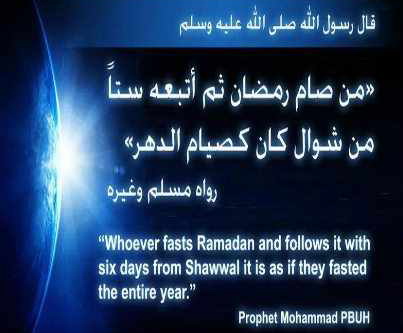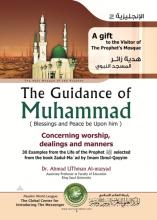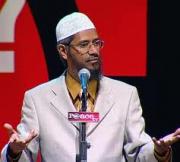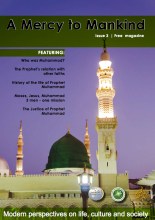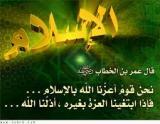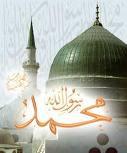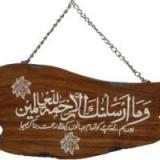The Prophet of Mercy Website
Muslim World League - Global Commission for Introducing the Messenger
Sealed Nectar
It was the most significant and the fiercest battle during the lifetime of the Messenger of Allâh peace be upon him, a preliminary and a prelude to the great conquests of the land of the Christians. It took place in Jumada Al-Ula 8 A.H. / September 629 A.D. Mu'tah is a village that lies on the borders of geographical Syria.
Dhat As-Salasil is a spot situated ten days' walk north of Madinah. The Muslims are said to have encamped in a place with a well of water called Salsal, hence the terminology Dhat As-Salasil. In view of the alliance between the Arabian tribes on the borders of Syria and the Byzantines, the Prophet peace be upon him deemed it of top urgency to carry out a wisely-planned manoeuvre that might bring about a state of rapport with those bedouins, and would at the same time detach them from the Byzantines.
In Sha'ban month 8 A.H., news reached the Prophet peace be upon him of amassing troops by Bani Ghatfan, still outside the domain of Islam. He urgently summoned Abu Qatadah and sent him at the head of fifteen men to discipline those outlaws. It took fifteen days to teach them an unforgettable lesson. Some were killed, others captured and all their property confiscated.
******
Ibn Al-Qaiyim described the conquest of Makkah as the greatest one by which Allâh honoured His religion, Messenger, soldiers and honest party. He thereby rescued the Sacred House, whose guidance all people seek. It was the greatest propitious event in heaven and on earth. It was the most significant prelude to a new era that was to witness the great march of Islamization and the entry of people into the fold of Islam in huge hosts. It provided an ever shining face and a most glowing source of inspiration to the whole earth.
According to the terms of the treaty of Hudaibiyah, the Arab tribes were given the option to join either of the parties, the Muslims or Quraish, with which they desired to enter into treaty alliance. Should any of these tribes suffer aggression, then the party to which it was allied would have the right to retaliate. As a consequence, Banu Bakr joined Quraish, and Khuza'ah joined the Prophet peace be upon him. They thus lived in peace for sometime but ulterior motives stretching back to pre-Islamic period ignited by unabated fire of revenge triggered fresh hostilities.
Later, in the same month, 'Amr bin Al-'As was sent on an errand to destroy another idol, venerated by Hudhail, called Suwa'. It used to stand at a distance of three kilometres from Makkah. On a question posed by the door-keeper, 'Amr said he had been ordered by the Prophet peace be upon him to knock down the idol. The man warned 'Amr that he would not be able to do it. 'Amr was surprised to see someone still in the wrong, approached the idol and destroyed it, then he broke the casket beside it but found nothing. The man immediately embraced Islam.
On the second day of the great conquest, the Prophet peace be upon him stood up and addressed the people in matters relating to the holy status of Makkah. After entertaining Allâh's praise, he proclaimed that Makkah was a holy land and would remain so till the Day of Judgement. No bloodshed was allowed therein. Should anyone take the liberty of fighting within Makkah on grounds derived from the events that characterized the conquest, he should remember that it had been a licence granted temporarily to the Prophet, and virtually does not go for others.
On the authority of At-Tabari, the Messenger of Allâh peace be upon him asked 'Aishah ÑÖì Çááå ÚäåÇ, his spouse three days prior to receiving news relating to breaching of covenant, to make preparations peculiar to marching out for war. Abu Bakr, meanwhile, came in and asked 'Aishah ÑÖì Çááå ÚäåÇ what the matter was, showing surprise at the preparations being made as it was not, as he said, the usual time for war. She replied that she had no idea.
The third and last stage of the life of the Messenger (peace be upon him) embodies the fruitful results of his call to Islam, which were the consequences of long-timed holy fights in the way of Allâh (Jihad), troubles, toil, disturbances, trials and a lot of bloody conflicts and battles, which lasted for over twenty years.
(1) holy wars and fighting.
(2) the tribes and people’s race to embrace Islam.
Being so close and rather inseparable, the two phases of this stage intervene in such a way that a happening of one phase occurs during the progress of the other. However, we have preferred — for expository purposes — to deal with these two phases distinctively. The fighting phase was given the priority in order, due to the fact that it is more intimate and fit than the other.
******

